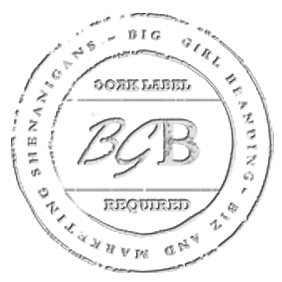Today’s guest post is courtesy of Julianna Davies.
She tackles a common #BGB topic in today’s post when she discusses the struggles entrepreneurs face when first getting started.
She takes the conversation further by pointing out flaws in the current U.S. tax system, and offers a number of possible fixes for the years ahead.
Please do me a solid and make her feel welcome.
Amidst a continuing recession, policymakers are relentlessly looking for ways to stimulate the economy. Increasingly, they are turning their attention to small businesses and start-ups, which are the drivers of innovation, market-making, and employment.
Strategies are being formulated which urge tax breaks on new companies in order to lower the unemployment rate.
Start-ups may not have always been the single most influential sector of the U.S. economy, but they are now. According to a Kauffman Foundation study, from 1997 to 2005, job growth was driven completely by start-ups.
These have managed to unearth new markets, new opportunities, and even new positions. Tech firms, such as Google, Facebook, and the Wikimedia Foundation are just a few examples of market-makers. Google employs 30,000 employees alone.
The Common Thread
Even though these companies are remarkable, they come from a vast seedpod of start-ups, which employ even more. Start-ups not only carry vast economic potential, they also comprise a large section of the current workforce.
For many, including policy-makers, that is reason enough for support. As the theory goes, by providing tax breaks or completely eradicating the need for start-ups to pay taxes, the government would allow entrepreneurs to divert more funding and attention to hiring more employees. Ergo more jobs.
This idea has circulated in a number of business publications, including Bloomberg and Forbes. Although the specific policies these media outlets suggest differ, all point toward reduced overhead for start-ups to facilitate the hiring of new employees.
Statistics Tell a Tale
Writing for Bloomberg, Jay Fishman suggested reducing taxes and red tape for the first three years of a company’s life.
His support for the policy comes from empirical evidence: “Just look at some of the states with the highest rankings for policy friendliness toward entrepreneurs, including South Dakota, Texas, Wyoming and North Dakota,” Fishman said. “They have lower taxes and lower levels of regulation than most other states. Their unemployment rates are also lower than the national average.”
Fishman’s statements do not completely prove the correlation between low start-up costs and unemployment rate; however, they do suggest that area should be studied more comprehensively.
In the interim, entrepreneurs must contend with the current tax system, and many can benefit from following a few simple guidelines, particularly regarding taxes. The Young Entrepreneur Council recently posted a list of best practices in this regard.
These emphasize a more thorough and strategic approach to filing business taxes than most young businesses take. For example, many young companies choose to file under a status that requires them to pay more than is necessary.
By learning more about the system or by hiring a professional, new businesses are likely to save money. Of course, should business taxes be reduced or extinguished for start-ups, tax lawyers and accountants would stand to lose a vast number of their own business opportunities.
Until Congress can pass new legislation that relieves start-ups of their tax obligations, entrepreneurs still need to devote a considerable amount of their time and thought on tax returns.
Perhaps tax-freedom for new companies is the best way to speed the economy’s recovery, but for now, IRS filings are an unfortunate necessity.
Over to You
Do you feel cutting or eradicating taxes for start-ups would stimulate the economy and promote job growth? Please share your thoughts in the comments below.

